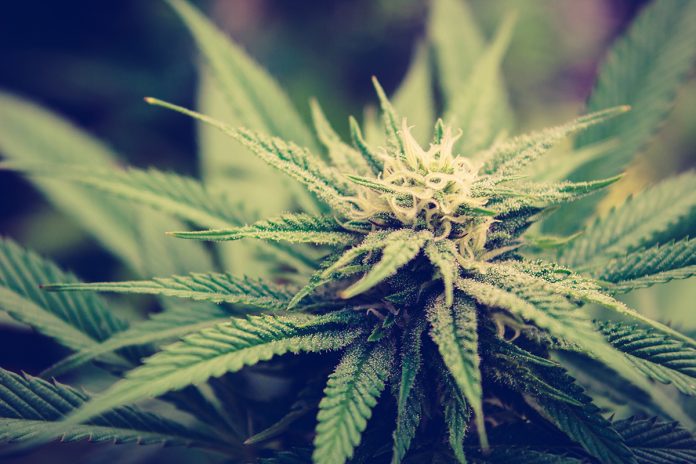Rebekah Shaman, Managing Director at British Hemp Alliance, explains what we need to know about removing the barriers to ensure a thriving UK hemp industry
The British Hemp Alliance (BHA), was formed in 2018 to lobby for change and remove the barriers to growth that are preventing the UK hemp industry from thriving. It is comprised of NGO’s, farmers, businesses, environmental organisations and individuals who want progressive changes in hemp legislation.
Over the last few years, there has been a massive revival in the hemp industry (the low THC cannabis plant), fuelled by the rapidly growing CBD and cannabinoid industry, the flower extract from the hemp plant.
CBD extracts
When we talk about CBD, we are referring to only one of the hundreds of non-psychotropic, non-intoxicating, and non-addictive cannabinoids contained in the leaf and flower of the hemp plant. These cannabinoids are essential for human (and animal) health and wellbeing.
However, it is still illegal for British farmers to harvest, process, extract or transport the hemp flower or leaf. These parts of the plant must be destroyed and ploughed back into the field. All CBD extracts sold in the UK are imported from Europe, China and Canada.
The flowers contain the highest concentration of CBD (cannabidiol) and are the most profitable parts of the plant. At present, the domestic CBD market in the UK is valued at £300 million and is expected to rise to £1 billion by 2025.1
A hectare of hemp flower is valued at around £33,000 (Ref: CMC CBD Report 2019), which means that, at present, British farmers are restricted from benefiting from this potentially lucrative crop.
The endocannabinoid system (ECS)
CBD products have exploded onto the market because we naturally need cannabinoids to function healthily. About thirty years ago, the ‘endocannabinoid system’ (ECS), was ‘discovered,’ – this is an essential ‘engine’ system, which is directly responsible for regulating our stress response, immune and brain functionality. Hemp flowers contain the natural levels of cannabinoids to regulate and maintain homeostasis in the body by nourishing these ECS receptors.
Therefore, the hemp flower naturally helps prevent a huge range of immune and brain diseases and ailments, including insomnia, pain relief, epilepsy, anxiety and depression. Since the global prohibition, all hemp flowers and leaf extracts were removed from our diet leaving us deficient from essential cannabinoids and more prone to these kinds of illnesses.
A case study, published in The Permanente Journal2 provides clinical data that support the use of CBD oil as a safe treatment for reducing anxiety and improving sleep, and the World Health Organization stated in 2019 that ‘CBD is generally well tolerated with a good safety profile.”3
Self-regulation
Most of the CBD companies registered in the UK are run by people who have benefitted from taking CBD and want to share their experience with others. Do some research and you will find inspiring stories of people who were able to change their lives with CBD and are experts in helping you find what you need.
However, in order to maintain the purity of CBD and ensure that what is being sold is not ‘snake oil’, it is essential that the industry starts to self-regulate, just as the ‘organics’ market did.
It is in the process of creating its own sets of standards and procedures, and weeding out any businesses that make false claims, have incorrect labelling, and cannot show proper and regular laboratory tests for their products.
However, despite the potential growth and expansion of this exciting new industry, and the economic potential it contains for British farmers and retailers, there is another huge threat hanging over the whole industry.
Novel food
Last year, the European Food Standards Agency (EFSA) suddenly, and without notifying the industry, classified hemp-derived cannabinoids as a ‘novel food.’ To be a novel food, it must be shown that hemp was never used as a food before 1997. Despite all the historical data and case studies proving that cannabis has been used and consumed in Europe, and all over the world for thousands of years, the European Union (EU) ruled that there wasn’t sufficient evidence.4
This means that all European CBD producers and sellers must now apply for the Novel Food License, which can take up to three to five years and costs hundreds of thousands of euros. This will effectively destroy all small CBD businesses and extractors, and means only big corporations will be able to benefit from this burgeoning industry.
This short-sightedness is destroying the possibilities of a thriving hemp industry that creates new jobs, boosts the local economy, provides tax revenue and alternative income streams for farmers. In a post-Brexit UK, we can now make choices independently of the EU.
The UK post-Brexit
The BHA believes three policy changes have to happen in the UK for hemp to be recognised as an essential agricultural and environmentally friendly crop:
All UK Hemp to be administered by the Department for Environment, Food and Rural Affairs (DEFRA).
Harvesting, extraction, processing and transportation of the whole hemp plant.
1% permitted levels of THC hemp in line with Switzerland.
At present, the hemp license remains the remit of the Drugs and Firearms Department of the Home Office. The UK is the only country in the world that still recognises hemp as a controlled substance, and not as an agricultural crop.
Under the Home Office, the process of getting the license is prohibitive. There are extensive criminal checks, strict limitations on where the crop can grow, complicated paperwork and no agricultural support or assistance. It is also very difficult to find funding and investment to grow the industry and these restrictions are deterring traditional farmers who want to diversify.
By removing the political barriers to growth, the BHA believes an unrestricted British hemp industry has the potential to kick-start a new green industrial revolution, boost local economies, provide tax revenue and help to seed a brighter future for British farmers and retailers while delivering several key agricultural and environmental policy goals in the UK.
At a time when farmers are looking to diversify and the UK needs to reduce its carbon emissions to net-zero by 2050, a thriving domestic hemp industry seems an obvious solution.
References
1 “CBD in the UK: Towards a responsible, innovative and high-quality cannabidiol industry,” CMC CBD Report 2019.
3 Summary: 40th ECDD (2018) Agenda item 4.1.
4 EIHA Novel Food Opposition (14 Relevant Cases within Europe).
Please note: This is a commercial profile











